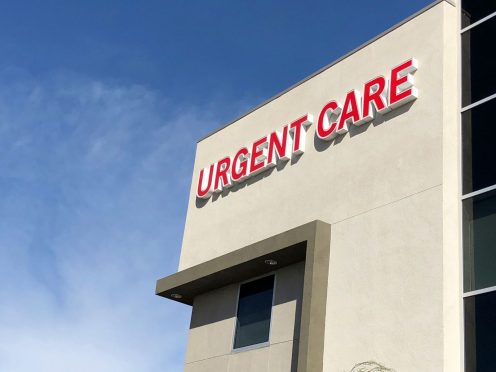When a cold or flu strikes, urgent care is often the first place you turn. But it’s not just for minor illnesses.
Here’s when you should go to urgent care — plus are some surprising conditions that urgent care can treat— according to Syed Hussain, MD, medical director of Hartford HealthCare Urgent Care.
Find an Urgent Care Center near me
Schedule my visitWhen urgent care is the right choice.
If you’re feeling unwell or can’t quickly get in to see your primary care doctor, urgent care might be your solution.
“We can treat many conditions at urgent care centers (UCC),” says Dr. Hussain. “With multiple locations, you can receive high-quality care close to home.”
Urgent care can diagnose and treat a variety of medical issues, such as:
- Mild to moderate asthma
- Small lacerations (not involving deep tissue, tendons or nerves)
- Urinary tract infections (UTIs)
- Bronchitis
- Non-life-threatening injuries from falls and trauma
- Boils and abscess drainage
- Splints and injury management
- COVID-19 and flu testing
“We also provide onsite diagnostic services like X-rays and lab tests,” adds Dr. Hussain. “Our doctors review these results to ensure you get the right care.”
> Related: Urgent or Emergent? Everything You Need to Know
6 surprising services that urgent care offers.
But urgent care centers aren’t just for emergencies. They’re also a convenient option when you need walk-in services without waiting for an appointment.
“The variety of services we offer may surprise you,” says Dr. Hussain. “
You can also rely on urgent care for:
- Physicals for school, camps, Workers’ Compensation or Department of Transportation
- Flu shots
- Travel immunizations
- Vaccinations
- Cholesterol, diabetes and thyroid screenings
- STD and HIV screenings
> Want more health news? Text StartHere to 85209 to sign up for text alerts
When the emergency department is the right call.
For potentially life-threatening medical situations, the emergency room should be your first stop.
“Some conditions require immediate evaluation for their severity,” explains Dr. Hussain. “At urgent care, we can assess and triage you, but in certain cases, you may need to go to the emergency department (ED) for a higher level of care.”
If you experience any of the following, call 911 right away:
- Chest pain
- Sudden shortness of breath
- Heart failure
- Severe allergic reactions
- Uncontrolled high blood pressure or blood sugar
- Severe asthma attacks
- Head injury with loss of consciousness or if you’re on blood thinners
“Urgent care centers are well-suited for non-life-threatening issues,” Dr. Hussain adds. “But life-threatening conditions need the specialized care found at an ED.”
Looking for an urgent care nearby?
Urgent care offers convenience, especially when the unexpected happens.
“With state-of-the-art medical services, patients can rely on exceptional care at every visit,” says Dr. Hussain. “With numerous convenient locations, it’s a good idea to get familiar with the urgent care center in your neighborhood—so when you need us, we’re here.”


